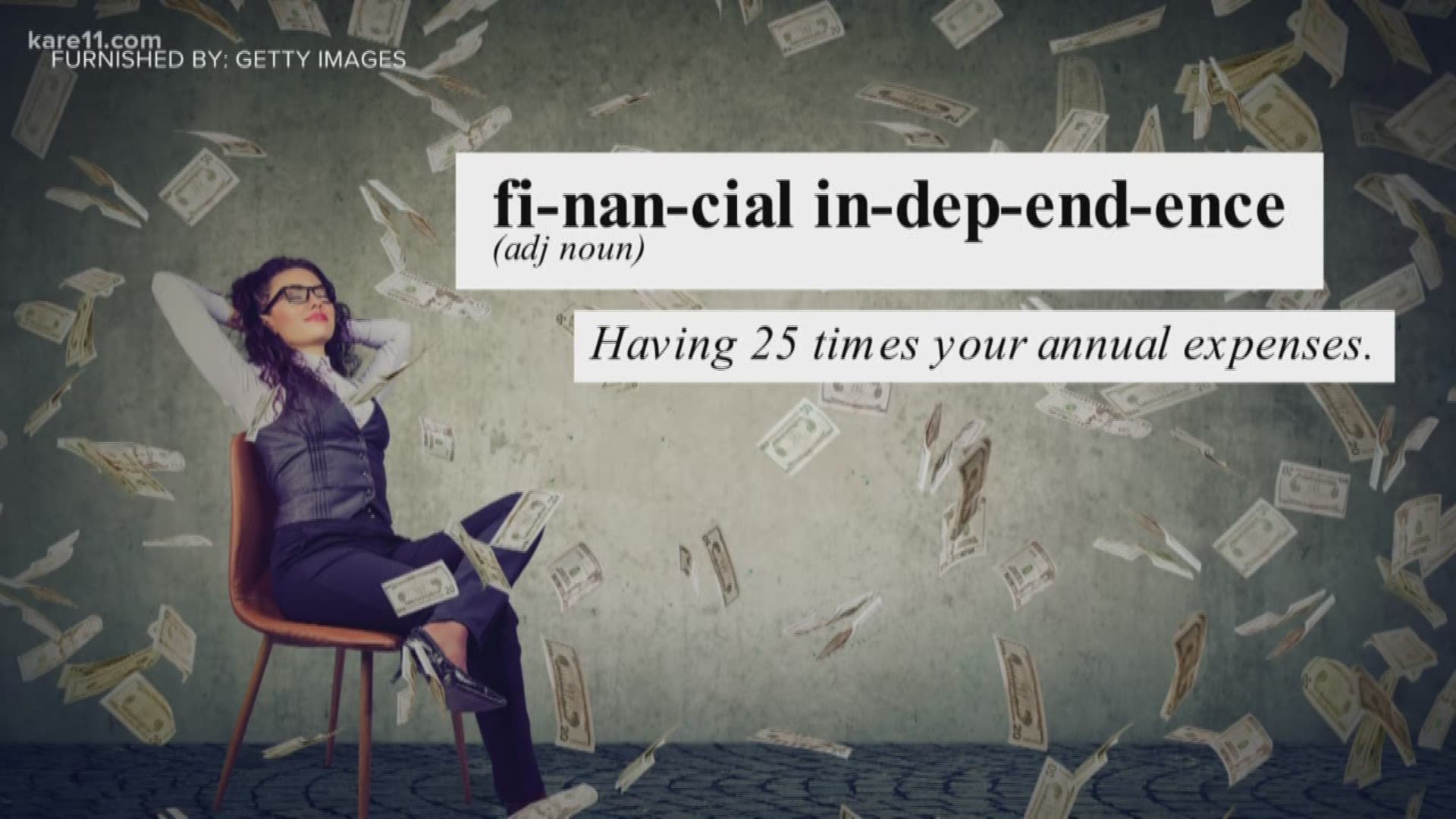Tired of your job? Wish you could walk away from it all and retire? Join the club. There's a growing number of people trying to do just that. It's a movement called FIRE. Financial Independence, Retire Early. Sounds great, right? The bigger question is how on earth do I make this happen?
DelRae Messer, a former chiropractor, wondered that same thing.
"And now having enough passive income to really retire in my 30's, I go to work because I absolutely love it,” says DelRae.
Now, the single mother of two, says she works just four hours a week coaching people about nutrition and selling Isagenix.
“I wanted to be able to raise my girls and have flexibility, and my parents are in a small town in North Dakota, so I thought if I could pick up and see them whenever, that was a priority for me,” she says.
DelRae is part of a trend called FIRE. Financial Independence, Retire Early. The idea being that if you can achieve financial independence, you won't have to punch a clock and work for the man.
Super. Duper. but how? Spend less, save more. A quick search online will give you any number of tips on how to do this. Couples who save one person's whole check, people who buy less expensive cars and homes and live as frugally as possible.
By the way, financial independence is defined as having 25 times your annual expenses. So, if it costs you 40k a year to live, you'd need to have 1 million dollars saved up to get you through the next 25 years. Sound next to impossible? Well, that's why the movement also suggests you invest things that provide passive income, like real estate. Still a skeptic? You're not alone.
"Everybody would love to have six Saturdays and a Sunday but is that reality?" says financial advisor Mike Kojonen.
He says FIRE is risky, unless you are independently wealthy, or truly have enough assets that will provide you income if you stop working.
"I think there's so much unknown in the future, with healthcare, with nursing homes, with market crashes, we don't know what the tax rates are going to be,” says Kojonen.
The group most interested in this concept is the group who can least afford it he says.
Mike supports the idea of financial independence, it does give you the freedom to quit a job you hate or give back to your community, it's the retire early part that has him snagged.
"I don't think we're even talking about the single digits percent of people that can do this, I think it's in the point single digits. Point one or point two percent of people that can do this but they'll still need to make a lot preparation to do so," says Kojonen.
But DelRae has no regrets. She says she can use her time to do things she's passionate about, like giving back, by helping hurricane victims.
“To be able to pick up in the middle of a week and be able to afford, number one getting down there, still getting paid while I'm not quote unquote working, but doing relief work. I did that in Houston and it was one of the most gratifying things I've ever done,” she says.
There are stories online of people who’ve created a product they can sell or they can run their company from home or they’ve worked hard enough to be able to turn running the company over to someone else. If that’s not you, even Suze Orman says FIRE is a bad idea.
When you “retire early” you lose the best earning years of your life. Salaries, for most people, continue to climb in your 40’s and 50’s, which means you’re missing out on all that. That also means if you plan to collect social security your checks will be lower. So, it all sounds great, and it certainly works for some people, but proceed with caution.

